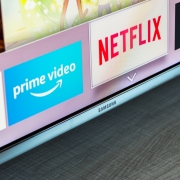Big Business’s Hypocritical Lurch To The Left Causes Them To Lose Trust, The One Loss They Can’t Afford.
Business credibility is in the tank. Results of a recent Pew Research survey depict a society-wide erosion of trust — especially for business leaders and elected officials. Only 46% of adults categorized as “medium trusters” (respondents were divided into low, medium, and high “trusters”) had “a great deal” or “fair amount of confidence” that business leaders would “act in the best interests of the public.” For a group that wants to sell to everyone, these poll numbers are a disaster.
By contrast, over 80% of “medium trusters” trust scientists, the military, police officers, and public school principals. Out of all the leadership groups studied, respondents expressed the second-lowest confidence in business leaders; only elected officials scored lower (they had the confidence of 39% of “medium trusters”). Even with the rise of “fake news,” journalists beat out business leaders by double-digits.
It didn’t start this way. All things being equal, no one, not even a business leader, wants to be mistrusted by others. Instead, like many ill-fated, well-intentioned movements, corporate America actually started out trying to boost their credibility with consumers. How did it all go wrong?
About 10 years ago, something called “Corporate Social Responsibility,” or CSR, became all the rage in the business community. Opinion surveys and contemporary wisdom inspired commentary like, “Consumers Overwhelmingly Want CSR.”
Corporate social responsibility is when a business acts like a good neighbor instead of an Ebenezer Scrooge. For instance, last October a Waffle House food truck offered free meals to victims of Hurricane Michael in the Florida Panhandle. Other good examples would include cutting pollution, raising local property values, and paying employees well. Consumers like that stuff.
Here’s what not to do: force explicit, obnoxious, and controversial political messages into areas that are not inherently political. If you sell kids’ clothing like Gap, a full court press to applaud homosexuality or transgenderism only serves to alienate a portion of your customers. If you make kids’ movies like Disney, pressuring states to not adopt anti-abortion laws is actively trying to kill off your own target demographic. If you sell coffee, pizza, or burgers, then getting in customers’ faces about your support for pride month is really unnecessary and will only serve to alienate rather than unify.
It’s no accident that business leaders took a nose-dive in credibility just when their marketing took a lurch to the left.
Instead of true social responsibility, big corporations have turned to virtue signaling. The other piece of “wisdom” these profit-motivated institutions learned 10 years ago: “It’s all about marketing.”
In exploiting today’s dominant rhetoric on contentious social issues, it’s almost as if big businesses are like actors playing a part, poorly hiding their true profit motive behind a mask. That, by the way, is the origin of the word “hypocrite.”
Perhaps the most egregious hypocrite is Netflix. Last month, the company threatened to boycott the state of Georgia, a new hotbed of film production, over a law that would protect unborn babies with a detectable heartbeat. Apparently, companies thought this bluff would be interpreted as righteous anger. Meanwhile, Netflix has been cowering to the regime’s censorship as it worms its way into the vast market of China. The company appears to be unmoved by the authoritarian regime’s vast concentration camps, organ harvesting of political prisoners, or religious persecution. But Georgia is somehow much worse, in their eyes.
At the same time, Netflix lost 126,000 domestic subscribers from March to June, instead of a predicted gain of 352,000. Even though this is its first quarterly U.S. subscriber loss since 2011, Netflix seems oblivious. It has blamed the loss on everything but its tone-deaf political activism.
Big business has failed spectacularly in its gambit to boost its credibility through taking far-left policy stances. Another nationwide opinion poll by Gallup shows public confidence in big business in 2019 (as opposed to all business leaders measured in the Pew poll) is at 23% — about where it was in 2003.
Why hasn’t their tactic worked? Because people can smell a phony. Big business isn’t winning any friends with their rampant hypocrisy.
They’ve just alienated social conservatives by swallowing the rhetoric of the abortion and LGBT lobbies hook, line, and sinker.
Today’s economy functions according to the same principles it did 10 years ago. Absent a radical reimagining of our economy, that’s not going to change. It’s these principles of free-market exchange that ensure that businesses’ only moral compass will always point toward maximum profit. That’s called survival. That’s also why it so unbelievable when big business claims to suddenly discover an enlightened, radically progressive moral compass.
Big business should stop the charade. If they want to exercise real social responsibility, that’s fine, but their political virtue signaling is see-through, hypocritical, and roundly condemned by all sides.
Joshua Arnold is the media coordinator at the Family Research Council.






